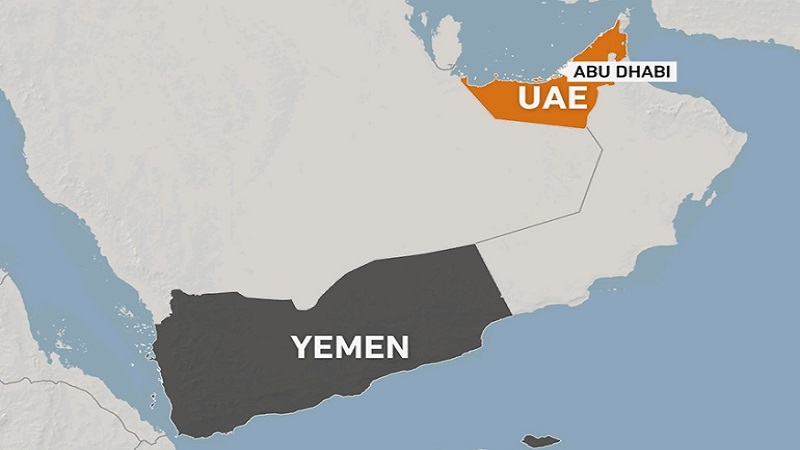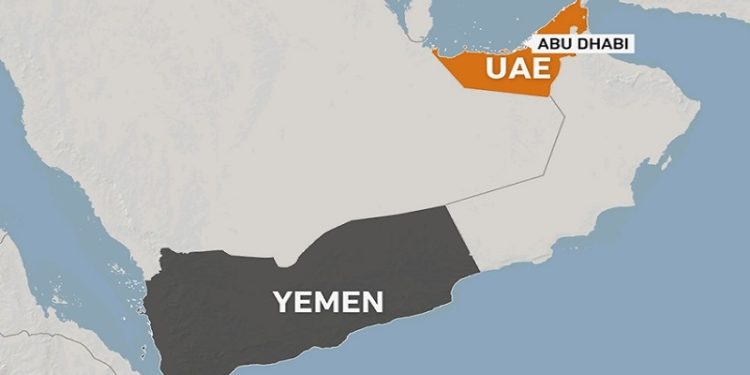The United Arab Emirates said it had intercepted a ballistic missile fired from Yemen as the Gulf state hosted Isaac Herzog on the first-ever visit to the country by an Israeli president.
The Emirati defence ministry said on Monday that the missile was intercepted and destroyed, adding that its debris fell on an uninhabited area. It did not say whether the missile was targeting the UAE’s capital Abu Dhabi or Dubai, the Middle East’s business and tourism hub.
The UAE civil aviation authority said air traffic in the Gulf country was continuing as usual, and all flight operations were operating normally despite the attack, the state news agency (WAM) reported.
The UAE is part of a Saudi-led coalition fighting the Iran-aligned Houthis in Yemen in a seven-year-old conflict that has left tens of thousands of people dead, displaced millions and spawned what the United Nations describes as the world’s worst humanitarian crisis.
Yemen’s Houthi military spokesman said late on Sunday on Twitter that the group would disclose within hours details of a new military operation deep inside the UAE. He gave no further details.
The Houthis launched an attack on Abu Dhabi on January 17 in which three people died, and a second missile assault a week later, after UAE-backed Yemeni armed groups intervened on front lines where the Houthis had made inroads last year.
The UAE’s defence ministry said warplanes of the Saudi coalition had destroyed missile launchers that were located in Yemen.
Last week, the Gulf state’s public prosecutor said it had summoned several people for sharing videos showing defence systems intercepting a previous missile attack by the Houthis. There were no social media posts on this interception.
Monday’s attack came as Herzog discussed security and bilateral relations with the UAE’s de facto ruler, Sheikh Mohammed bin Zayed Al Nahyan, in Abu Dhabi.
Herzog spent the night in Abu Dhabi, an Israeli official told the Reuters news agency. He will continue his UAE visit despite the Houthi attack, his office said.
The United States, which warned of the risk of continued missile or drone attacks in a travel advisory last week, condemned the attack.
“While Israel’s president is visiting the UAE to build bridges and promote stability across the region, the Houthis continue to launch attacks that threaten civilians,” State Department Spokesman Ned Price said in a tweet.
The UAE, along with Bahrain, signed US-brokered normalization agreements with Israel, dubbed the “Abraham Accords”, in 2020.
The UAE has reduced significantly its military presence in Yemen since 2019, but it still holds sway via large local forces that it has built and armed.
Commenting on the events, James Farwell, a senior fellow at the Middle East Institute said the conflict has reached a stalemate because neither has been able to prevail militarily.
“The situation is becoming more dangerous because the nature of weapons being used in the attacks is becoming more deadly,” said Farwell.
“The Houthis are trying to bring pressure to the Saudi-UAE coalition to bring things to a favorable close. The only way this [conflict] is going to be resolved is if the Saudi, the Emirates and Houthis sit directly to together and work things out.
“There isn’t any alternative because neither side has been able to gain an advantage over the other,” he added.







 WhatsApp us
WhatsApp us 

